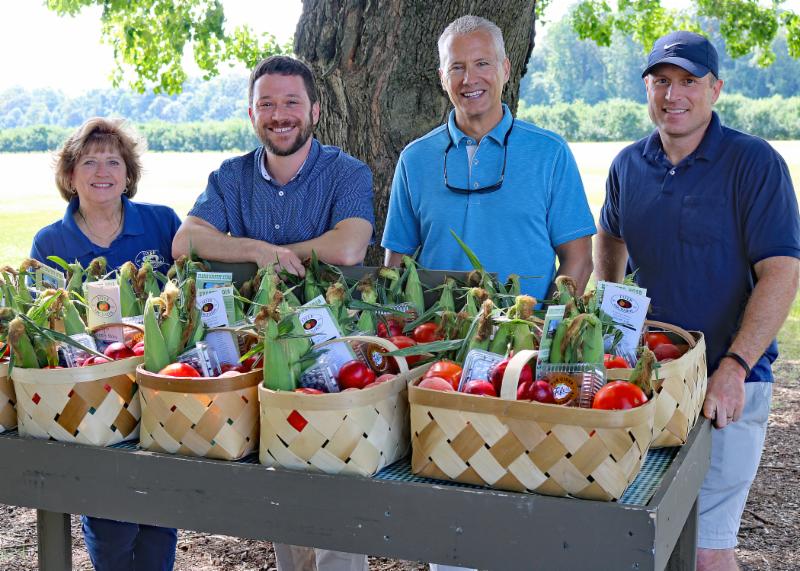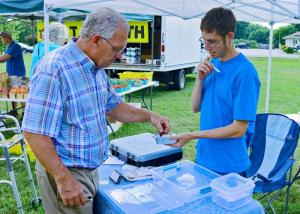Delaware Produce Week links farmers with local residents
Facilitating a better relationship between Delaware farmers and local consumers is the goal of Delaware Produce Week.
Established in 2015 as a partnership between the General Assembly and the state Department of Agriculture, each week-long observation includes events highlighting the numerous ways Delawareans can connect with family farms in their communities. Rep. Lyndon Yearick, R-Dover South, who was raised on a dairy farm, sponsored House Resolution 34, designating July 9-13 as this year's Delaware Produce Week. It was the fourth consecutive year for the observation.
"Farm products often travel hundreds of miles from producer to plate," said Yearick. "In some cases, that's unavoidable. But in many instances, the fruits, vegetables, and meats that Delawareans want are being produced not far from their front doors. Fresher food translates into better nutrition, better taste and the potential for better eating habits."
Buying and eating local produce also benefits the economy. "Keeping our food dollars in local circulation stimulates economic activity and supports Delaware's agricultural community," said Rep. Jeff Spiegelman, R-Clayton. "Better food and better fortunes for our farmers. It's a classic win-win situation."
Yearick and Spiegelman visited Fifer Orchards July 13. The fourth-generation family farm near Wyoming illustrates many ways consumers can access local produce. In addition to being a major producer of Delaware peaches, Fifer Orchards also includes a U-pick produce business; an on-site farm market selling their own produce and regionally sourced agricultural products from other local producers; a wholesale operation selling directly to local retailers; and a community-supported agriculture program.
CSA programs occupy a small but intriguing niche of agriculture consumerism. Typically, customers purchase a share of a farm's seasonal production with boxes of fresh fruits and vegetables proportionally distributed to the shareholders at regular intervals during the growing season.
Jessica Yocum, CSA coordinator for Fifer Orchards, said their program began in 2011 with about 50 members, and some 400 families are participating this year. The CSA program operates 25 weeks of the year: 18 weeks during the late spring and summer, followed by a seven-week shoulder season in the fall.
Another way Delaware farmers can connect with their neighbors is through direct sales, either at farm stands or farm markets. According to the Delaware Department of Agriculture, there are over 80 on-site farm stands throughout the state and more than 20 community-run farmers markets.
Last year, total sales at Delaware's farmers markets topped $3 million, 47 percent of which was tied to agricultural products such as meats, cheeses, jellies, breads, salsa, eggs or honey.
In 2016, the Delaware Division of Public Health promulgated regulations expanding opportunities for those interested in preparing food in their homes for sale to the public. While the requirements for engaging in a cottage food establishment are lengthy, the rules allow for the sale of baked goods such as cakes, breads, cookies, rolls, muffins, brownies, fruit pies and pastries; jams, jellies and other fruit preserves; and candy including fudge, lollipops, chocolates, tortes, hard candy and rock candy.
Because the CFE regulations require direct-to-consumer sales, farmers markets have become an ideal way to launch a startup food business directly from home.























































